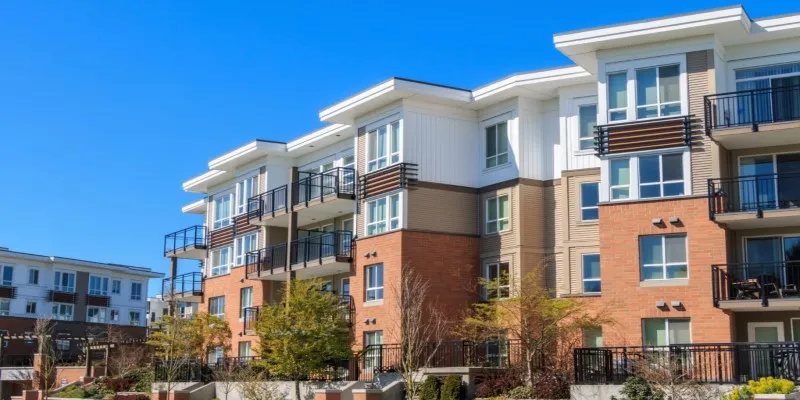Is Buying a Condo Right for You? Here’s What You Should Know

Buying a condo is a major decision that offers the benefits of homeownership along with the ease of community living. For many, it strikes a perfect balance between independence and low-maintenance living, often situated in desirable urban or suburban locations. Condos are attractive due to their affordability compared to single-family homes, but they come with their own set of considerations.

It's essential to understand the role of a condo association and to account for monthly fees, as the process involves more than simply buying a unit. Condo living can be a great option for those seeking an accessible way into real estate, but it's crucial to consider the lifestyle trade-offs, financial responsibilities, and long-term effects of condo ownership before taking the plunge.
Understanding What a Condo Is
Condos, short for condominiums, are individual units within a larger building or community where owners share common spaces and amenities. It is not renting an apartment but owning your unit and sharing an interest in the common areas of the building, which may include lobbies, gyms, pools, or outdoor spaces.
Condos are governed by a set of rules set up by a homeowners' association or condo association. These associations handle maintenance, enforce community regulations, and run shared facilities. Owners pay monthly fees to cover services ranging from lawn care to structural repairs.
A key difference between condos is the lifestyle they offer. Often, the buyer is seeking a balance of city convenience with residential comfort. This appeal means that condos tend to thrive in very central city locations or areas of great density, but the shared nature of condo life means you will be giving up some privatization for community interaction.
Key Factors to Consider Before Buying a Condo
A condo is more than just the price one pays for a unit; it's essential to consider broader financial and lifestyle implications.
First, think about the location. Condos are usually located in good locations that can offer proximity to work, schools, or leisure activities. However, a convenient location can come with a price or even a busy environment that isn't for everyone.
Next, evaluate the condo fees. These monthly payments cover communal expenses but can vary significantly depending on the amenities offered. High fees might strain your budget, while low fees could mean insufficient maintenance or reserves.

Another important factor is financing. Condominium mortgages may be different from regular single-family home mortgages. Higher down payments may be required by lenders for condominium mortgages, especially if the condominium association has financial problems or a high percentage of rentals.
Lastly, understand the rules set by the condo association. These guidelines can affect everything from how you use your unit to whether you can rent it out. For some, the structure and predictability of these rules are a benefit. For others, they may feel restrictive.
The Condo Association and Its Role
The condo association is a cornerstone of condo ownership, managing the community’s operations and enforcing its rules. This group is typically made up of unit owners and a professional management team.
One of the association’s primary responsibilities is maintaining the common areas. Whether it’s repairing a shared roof, keeping the pool clean, or landscaping, the condo association ensures that shared spaces remain functional and appealing.
Additionally, the association establishes and enforces rules through a document known as the Covenants, Conditions, and Restrictions (CC&Rs). These rules might include pet policies, noise regulations, or restrictions on renovations. It’s essential to review these guidelines before purchasing to ensure they align with your lifestyle.
Financial management is another key role. Condo associations collect fees to cover routine expenses and contribute to a reserve fund for major repairs or emergencies. However, poorly managed finances can lead to sudden special assessments, where owners are required to cover unexpected costs. Before buying, request a copy of the association’s financial statements to ensure it’s financially stable.
Pros and Cons of Buying a Condo

Condo ownership has its advantages and drawbacks, and understanding these can help you decide whether this type of property is the right fit.
On the plus side, condos offer a low-maintenance lifestyle. The association handles most exterior upkeep, allowing owners to focus solely on their living space. Condos often include access to amenities like gyms, pools, or security features, adding convenience and value to your investment.
Another benefit is affordability. Condos can be more affordable than standalone homes in the same area, making them an attractive option for first-time buyers or those looking to downsize.
However, there are trade-offs. Condo fees can be a financial burden, especially if they increase unexpectedly. Some buyers also find the association rules too restrictive, limiting their ability to personalize or use their units freely.
Resale value can be another concern. While location and condition play a significant role, market demand for condos can fluctuate. Factors like high association fees or poor management might deter future buyers, impacting your ability to sell.
Finally, shared living can pose challenges. Noise from neighbors, disputes over rules, or disagreements with the association can detract from the condo experience. If privacy and autonomy are priorities, a condo might not be the best choice.
Conclusion
Buying a condo is a decision that extends beyond the property itself, touching on financial planning, lifestyle preferences, and your willingness to navigate shared community living. For some, the convenience and amenities of condo ownership are undeniable advantages. For others, the potential restrictions and ongoing costs may outweigh the benefits. By thoroughly understanding the nature of condos, evaluating the role of the condo association, and weighing the pros and cons, you can make an informed choice that aligns with your goals. As with any significant purchase, take your time, ask the right questions, and consider how this investment fits into your broader life plan.
SEO and Readability Enhancements:
- Title and Meta Description: Ensured the title and meta description are clear and contain relevant keywords like “buying a condo” and “condo ownership.”
- Headings: Used keyword-rich subheadings to improve SEO and guide readers through the content.
- Images: Ensured images have descriptive alt texts to improve SEO and accessibility.
- Content Clarity: Improved sentence structure for better readability and clarity.
- Keyword Usage: Naturally integrated keywords throughout the text to enhance SEO without keyword stuffing.